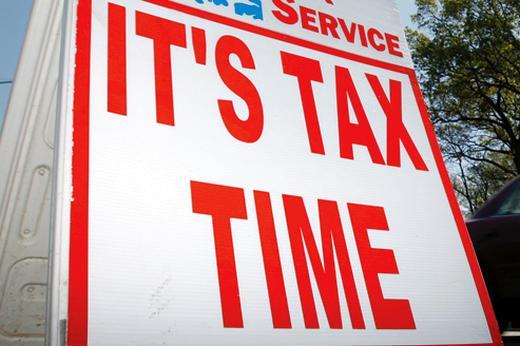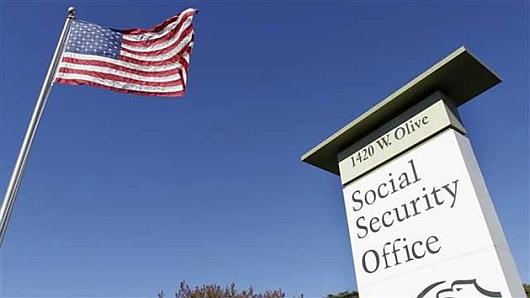
With an annual salary of Rs 12-15 lakh (Rs 1.2-1.5 million), you might not be able to buy a decent house in any of the top metros.
However, in the government's eyes, you belong to the super-rich category. That is, if the government goes by former chief statistician Pronab Sen's calculations.
The calculations are based on the US' proposal to increase tax from 35 per cent to 39.6 per cent for incomes up to $400,000 (about Rs 2.10 crore) a year for individuals and $450,000 (about Rs 2.38 crore) for couples. In the US context, the number is around 3.5 times per-household gross domestic product.
Applying the same logic, the number would be Rs 12.77 lakh a year for India. The only difference, according to experts, is that India's population at 1.2 billion is four times that of the US. The income disparity is also much wider.
The Suresh Tendulkar methodology on the Planning Commission website showed 29.8 per cent Indians below the poverty line in 2009-10 and 37.2 per cent in 2004-05.
So, corporate tax lawyer H P Ranina feels the threshold has to be much higher. "It may be between Rs 25 lakh and Rs 30 lakh (Rs 2.5 million and Rs 3 million), that is, for taxpayers earning more than Rs 250,000 a month. And, the tax rate could be 35-40 per cent," he says.
While there is no super-rich tax per se abroad, the rate for the highest slabs in the US, the UK, Europe and Australia is quite high.
...

The marginal tax rates for 2012 for the US saw the highest rate at 35 per cent for those earning $388,351 and above.
It has six tax slabs of 10, 15, 25, 28, 33 and 35 per cent. The lowest slab at 10 per cent is for those earning up to $8,700.
Similarly, the UK's basic tax rate stands at 20 per cent for those earning up to 34,370 pounds (about Rs 30 lakh) and the highest is 50 per cent for income of 150,000 pounds (Rs 1.28 crore) or more.
Australia levies 9.7 per cent effective tax for those earning between AUD 18,201 (Rs 10 lakh) and AUD 37,000 (Rs 21 lakh); the highest rate stands at 30.30-44.90 per cent for incomes of AUD 180,001 (Rs 1.02 crore) and more.
Compare this with India. The UK's 34,370 pounds translates to around Rs 30 lakh, against India's basic exemption limit of Rs 200,000.
India's proposal to tax the super-rich is coming on the back of countries such as the US and France, which have tried to bring this in.
"In the US, the share of population earning more than $400,000 is relatively large. There are many billionaires and millionaires. A large part of the government's revenue comes from income tax. So, it is possible for the government to raise revenues by increasing taxes. Hence, the proposal to raise taxes for the top segment of the population to levels during the Clinton era," says Tarun Jain, professor of economics and public policy at the Indian School of Business.
...

Unfair burden
According to experts, keeping the threshold of Rs 12-15 lakh is quite ridiculous. A house in Mumbai or Delhi will cost anything between Rs 75 lakh and Rs 1 crore (Rs 7.5 million and Rs 10 million).
A taxpayer earning Rs 12-15 lakh will get a home loan of only Rs 40-60 lakh (Rs 4 million - Rs 6 million). It is unfair to brand someone who cannot buy a house in a metro as super-rich.
Another important factor is inflation. Although the wholesale price index has come down to 7.18 per cent for December 2012, it is way above the US' 1.9 per cent for the full year 2012.
The inflation rate in the UK was recorded at 2.70 per cent in December 2012. For Australia, inflation on a yearly basis stands at 2.4 per cent. So, the expenses of an Indian family are growing at a much faster pace than in other developed nations.
No wonder, Mukesh Butani, managing partner of BMR Advisors, says it would encourage evasion.
"Those in the high income bracket will resort to various means for evading taxes. A higher tax rate will reduce compliance and arrest widening of the taxpayer base. And, the most popular one is the trust route. If the government imposes a higher tax rate, they will set up a trust. If the government plugs even that, there will be some other routes."
Some could even go to Dubai or Singapore for a lower tax regime and better benefits. In any case, a lot of the super-rich of India are based out of London.
...

Of course, taxing the rich has become one of the easiest ways to garner money. Many foreign nations are trying to bring in this regime but they are keeping an extremely high limit.
Something Kuldip Kumar, executive director (tax & regulatory services) at PwC India, recommends: "Those earning in crores may not mind paying additional taxes but the government needs to have a justification and rationale for it. If earnings above Rs 12-15 lakh are to be considered rich, this proposal might backfire. Expanding the tax base by catching more riches could yield better collections than taxing the rich."
The government should be concentrating on compliance and not the super-rich. According to experts, only around three individuals in every 100 pay income tax.
Tracking the Richie Rich
There are checks and balances anyway to track the super-rich. "We already have a clause for expenditure-based income. For instance, suppose one spends Rs 1 crore for a wedding or a foreign trip but shows an income of only Rs 50 lakh (Rs 5 million).
Under Section 69, 69A, 69B and 69C, if a person cannot explain the source of money, it becomes the income for that year and is taxable. Since you can't know anyone's actual income, catch hold of the person based on his expenditure or savings," says Ranina.
Another proposal is to have a voluntary disclosure scheme, with proper incentives such as rewards or higher limits. The annual information return (AIR) list can also be used to catch tax evaders, as it contains details of cash deposits of more than Rs 10 lakh in savings accounts/payments for credit card bills of Rs 200,000 or more.
...

The government could also look at taxing very high dividends and capital gains earned by those. Or, those owning many properties at the same time but not showing earning in proportion.
Additionally, foreign countries have a strong welfare system. Whatever you pay as taxes comes back in the form of social security and free medical treatment for senior citizens.
There is no such consolation in India for the high taxes we pay, not even in the form of better infrastructure and standard of living. Does a higher surcharge then make sense?
"The government could look at increasing the surcharge rate, albeit as a temporary measure as this amount goes directly to the Central government," says Butani.
Surcharge is an additional levy applicable to those earning Rs 10 lakh and more annually. Earlier, it used to be 10 per cent, which was reduced to 5 per cent and then 2.5 per cent. It may be brought back to five or 10 per cent.
Data shows when rates were cut, compliance went up. The slab rates have been 10, 20 and 30 per cent since the late 1990s. In that decade, the slab rates were 20, 30 and 40 per cent.
In the 1970s, the rates went up to 95 and 97 per cent. However, experts say the tax collection increased from the 1990s.
Even the tax-GDP ratio moved up from 2-2.5 per cent in 1990s to above 6per cent in 2008. Reason: Moderate tax structure.